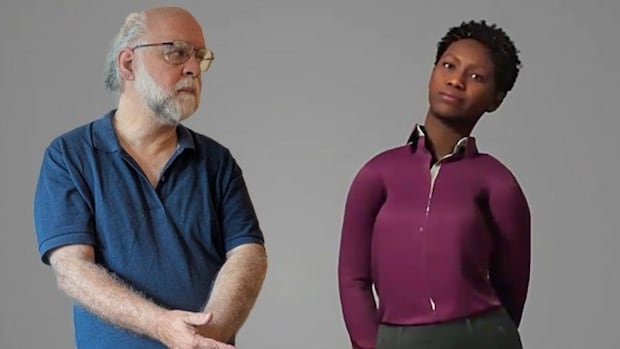The newest course assistant at Simon Fraser University in Burnaby, B.C., has zero experience, no academic credentials and has never set foot in a classroom.
Nevertheless, Kia, an expressive, 3-D digital persona, will be in attendance as a sidekick to professor Steve DiPaola in his first-year course on the history and ethical challenges of AI.
“This class is designed for students with no prior AI experience,” said Kia, speaking with a British accent in an online post introducing the course. “I’ll be here to provide answers, insights, and to facilitate lively discussion whenever questions arise.”
Kia has the physical image of a short-haired Black female and features “real-time facial expressions, lip-sync and a multitude of emotive body languages,” according to SFU.
She is the creation of computer scientist and AI expert DiPaola, who goes out of his way to stress that his actual human teaching assistant is not being replaced, nor will Kia be grading any student assignments.
“What I’m going to do on the stage for the first time is have an AI collaborator. So anytime there’s a question about what an AI would think, we can simply turn to Kia and ask her, or even debate her,” he said.
DiPaola said his goal with Kia is to “anthropomorphize” AI to expose it for what it is — and what it is not.
 DiPaola says his goal with Kia is to ‘anthropomorphize’ AI to expose it for what it is — and what it isn’t. (Ben Nelms/CBC)
DiPaola says his goal with Kia is to ‘anthropomorphize’ AI to expose it for what it is — and what it isn’t. (Ben Nelms/CBC)
“What better way to talk about AI ethics than to bring AI into the classroom to teach alongside me? Performatively, I think it engages students about the real issues,” he said.
DiPaolo’s use of Kia is a “world first,” according to SFU. Other computer scientists are watching with interest.
“A lot of people are afraid and opposed to anthropomorphizing AI. So they would say this is kind of a slippery slope,” said Alan Mackworth, professor emeritus in computer science at the University of British Columbia.
“It’ll make a lot of mistakes, for one thing, [and] it’ll make hilarious mistakes,” he said.
Sarah Eaton, an education professor at the University of Calgary, says the arrival of Kia and AI use in schools in general could lead to ethical concerns around academic labour and how schools might exploit it for cost savings.
However, she also sees it as a sign of things to come in the classroom.
“This is teaching for the future, but doing it today,” she said. “In the future, we will probably see a lot more AI sidekicks or assistants working alongside human educators to help support pedagogy, good learning, and also personalized approaches for students with diverse learning needs.”
Kia makes her classroom debut on Sept. 3.

